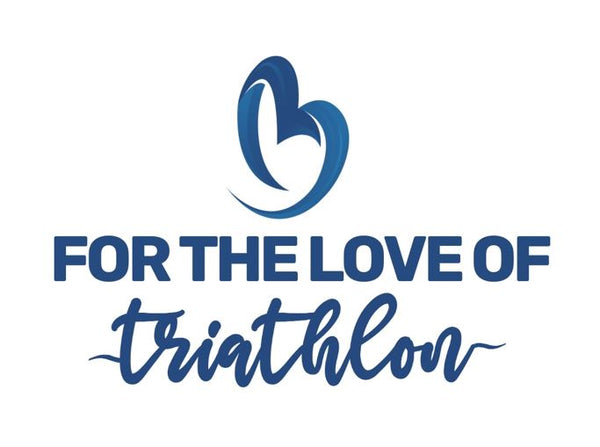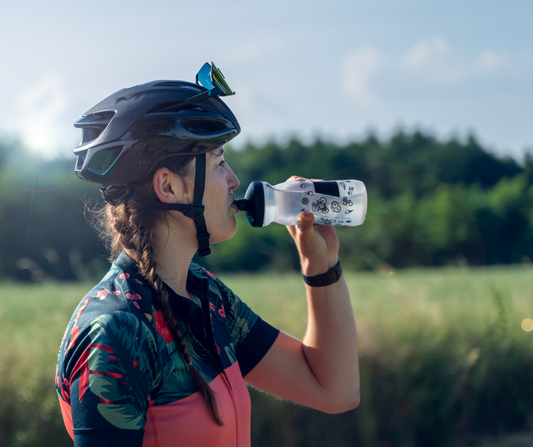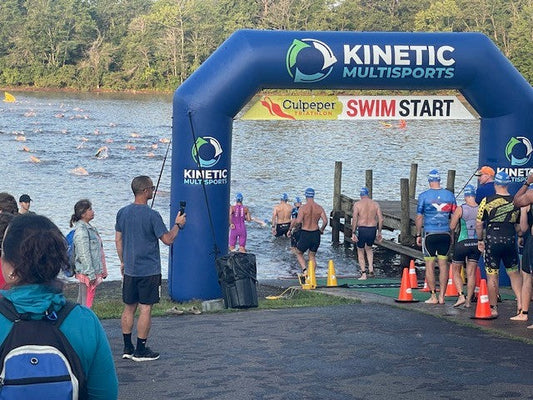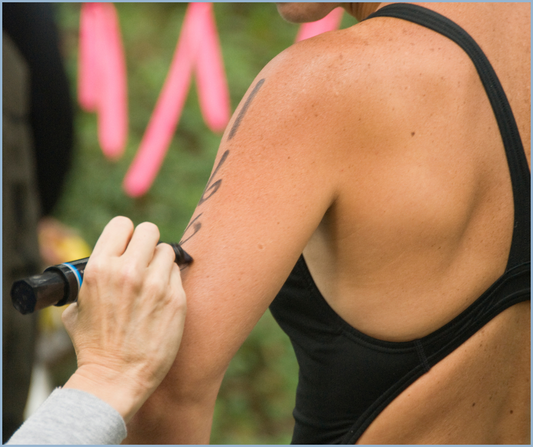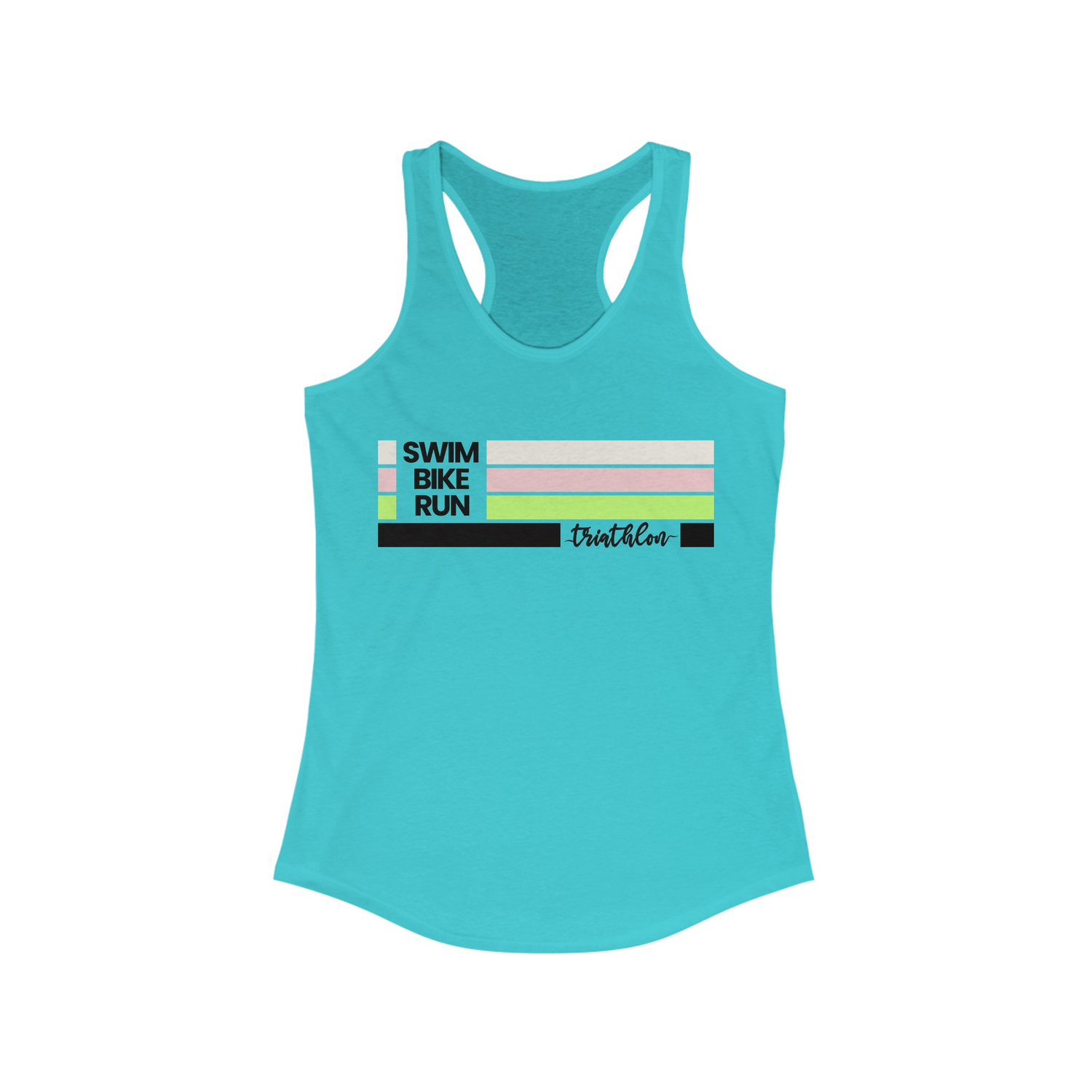Tips to ensure you are ready for your first triathlon race
You’ve put in the training… It's been months since you took the plunge into training for your first triathlon and race day is almost here. It’s an incredibly exciting time and also nerve wracking. I’ve been there…. Many times. After 44+ triathlon races, including 2 IRONMAN distances and 8 - 70.3 distance races, I still have the first time nerves before each race. I work on accepting that this is normal and even healthy, and use it as fuel to push myself. If you are new to my blog or website… Hi! I'm Brooke. A wife. A mom. A professional. A dog mom. A daughter. A friend. And a Triathlete. I started For The Love Of Triathlon because I believe we should be spending the limited free time we have, doing what we are passionate for. I’ve had so much fun participating in triathlons over the years, I started this shop to ensure each and every athlete’s triathlon journey is celebrated and they feel proud to participate.
So I’ve pulled together some race day tips that I hope will ease some nerves and help ensure you are organized for your first race day. Good Luck and please leave some comments below. I’m cheering for you!
MINDSET
Believing that you can do it, is the first step. You are here, reading this, so you can check that box. Next is to believe that you put in the work, so you’ll be able to achieve the goal of crossing the finish line. Rely on that training to find you confidence. Let ‘trusting the process’ bring you some stress relief as you amp up for race day. (Of course, it is totally normal to have some doubt, let it come and watch it go - wave bye!). Determine a mantra that you will repeat on race day, especially when times get tough. “I can and I will” or “I can do hard things” or “what doesn’t kill me makes me stronger”. If a mantra doesn’t speak to you, try a song. In the past, I’ve been partial to “Headstrong” by Trapt and “Titanium” by Sia.
- Race Plan - I’m a huge proponent of completing a race plan, which is essentially a mental checklist and play by play of your entire race day. This ensures you don’t forget anything AND allows you to go through every motion (including nutrition) so you have a plan to follow. Having a plan also eases your stress and allows you to stay in a positive mindset. Check out my Ironman 70.3 Augusta (2022) race plan.
- Remember that it’s unlikely EVERYTHING will go right on race day. You will and should learn things that you can take away and implement for your next race. That’s how we all get better and smarter. Accept if something doesn’t go “right” and find a quick solution.
- Packing - Make a checklist of everything you need for race day. This will keep you organized and reduce anxiety.
- Race Brief - If offered by your race, be sure to attend in person or tune in via Facebook live. A lot of your questions or concerns will likely be answered, as these race directors have a wealth of experience. The information provided will help your overall mindset and boost your confidence.
RACE DAY
- Packet Pick up: Preparing for race day takes a lot of focus and organization. Check the event's race schedule for the timing of “packet pick-up” to get your race bib, timing chip, and swim cap. Without those, you will not be able to race. Some events do not offer this on race morning. Picking up your race packet the day before the race will reduce your race morning stress. Your "packet" will include your race number as stickers to go on your helmet and bike frame. Also, you will have to show a photo ID for packet pick-up, so you cannot have someone else pick-up your packet. This is usually non-negotiable by race management.
- Arrival: Be sure to check the race start time. Generally, I aim to get there 1.5 to 2 hours before the race starts. This is just to ensure I minimize stress (some races can get REALLY backed up for parking which can add a significant amount of stress to your morning if you get caught up in it).
- Body Marking: Allow a little time for body marking, which is your race number written on your shoulders, thighs and calves (plus age). *or some variation of this. Most local races will have volunteers grouped together with sharpies ready to quickly take care of this for you.
- Nutrition: Race mornings usually throw a wrench in your nutrition plan because you have a long gap of time between leaving the house/hotel and starting the actual race. Be sure to bring food with you to eat before the race. Follow your normal nutrition plan, trying to minimize doing anything new that could upset your stomach during the race. For example, I usually make overnight oats in a to-go container (my usual breakfast during triathlon training) and eat it upon arrival at the race site. I also bring a banana or apple to eat in transition or at swim start. I’ve watched lots of people take in a gel right before the swim starts too, so whatever works for you to ensure you aren’t starting the race empty.
- Course: Review the course maps in advance. Be sure you know the swim course direction. Are you turning left or right at the buoys? Is the run course an ‘out and back’ or 2+ loops? Study the transition area and memorize the swim in / bike out / bike in / run out areas. These are usually different to avoid collisions.
- Water temperature: There will likely be a lot of chatter about water temperature before the race. Race management will also make announcements on race morning if the race is wetsuit legal. If you haven’t snagged a wetsuit yet, you can contact your local triathlon or cycling shops to see if they rent wetsuits. If you wear a wetsuit, be sure to lube up your neck with BodyGlide (or similar) to minimize chafing from the wetsuit on your skin.
- Gear: Everything for the race should fit (mostly) into one bag. I prefer a backpack, because you have to walk your bike in/out so I need both hands. Your transition space is very small (think 16” W x 24” L), so all of your gear should fit inside that. I love using my For The Love Of Triathlon accessory bag to store all my race day accessories so I don’t forget anything - like gels, body glide, goggles, heart rate monitor, and trash bag.
- I’ve done 44 races and here are a few things that I still tend to feel at every single race (and are absolutely normal):
- Everyone else has a super fast, new, and shiny bike.
- Everyone else looks like a professional.
- Everyone else looks super fast.
Here’s the reality:
- Everyone is focused on themselves and not looking at you.
- Everyone feels like a sausage stuffed into their spandex suit.
- Everyone is just happy to be there.
- Everyone has nervous energy just like you (everyone shows it differently)
- Everyone wishes you luck in the race.
- Everyone has to use the bathroom (expect a line).
WEATHER
One of the number one things you will learn as a triathlete, is to focus your energy on what you can control. Your training, your fuel, your sleep… weather is totally outside of your control. Despite it being so frustrating to have a rainy race day, we can be prepared. Check out this blog post for being prepared for a rainy race day.
Last thing on the race day check list is to SMILE. Talk to the people around you in transition if you have questions. In between bites of their banana, they are usually happy to chat to distract themselves from their race day nerves. Please come back and comment below to let me know how it goes. You'll do great, I'm cheering for you!
- Brooke

^Swim start at Ironman 70.3 Augusta in September 2022. It was a point to point swim, and my first 70.3 after having a baby, so I was close to tears that my husband and daughter (age 3 at the time) made it to swim start and found me. So much love.
^ Copy of my Ironman 70.3 Augusta race plan. Thinking through every detail really helps reduce my race day stress and anxiety. For checks and balances to ensure I don't forget anything, I email it to myself and print a copy to go in my race bag.
